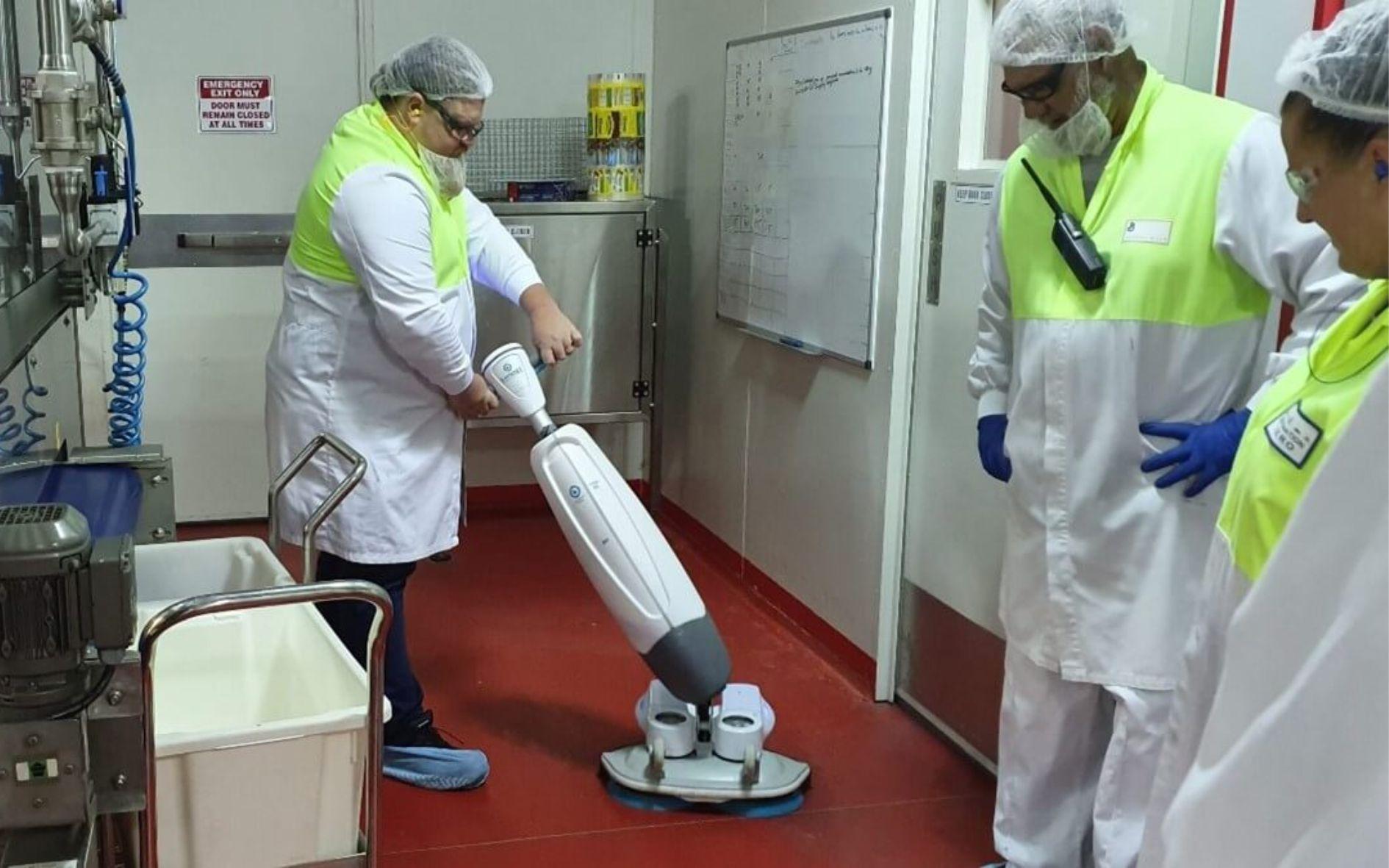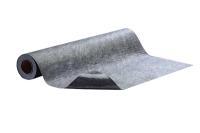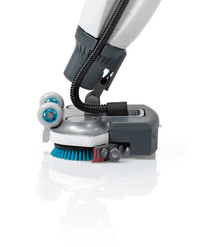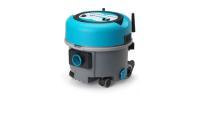You are reading: Why Is My Floor Always Dirty? Common Causes and Easy Fixes
01 August 2024
5min read time
Brooke Payne
Why Is My Floor Always Dirty? Common Causes and Easy Fixes
Share:

Key Insights
- Floor Cleaning Frequency: Adjust cleaning schedules based on facility type and traffic volume to maintain cleanliness.
- Effective Floor Cleaning Tools: Use advanced cleaning machines like the i-mop for faster, more thorough dirt removal compared to traditional mops.
- Floor Mat Solutions: Install quality entrance mats or extended matting systems to prevent dirt from entering and reduce floor cleaning needs.
Floors can look or feel dirty for a number of reasons.
Dirty hard surface floors are usually caused by the environment, an overuse of chemicals, and a large volume of traffic.
Fortunately, there are many things you can do to keep your floor looking and feeling cleaner for longer. Plus, some vitally essential cleaning tips can make a massive difference to the cleanliness and appearance of your floors.
Problem: Heavy traffic
Many commercial buildings have heavy traffic, and this can make floors dirty, slippery and unclean. It's not feasible to have staff cleaning your floors constantly.
So, what's a solution that doesn't involve a 24-hour cleaning schedule?
Solution: Floor mats
Good quality entrance mats are a great place to start if you want to keep your floors clean. Sturdy, strategically-placed mats can pick up a substantial amount of dirt, dust, mud, sand and germs before they have a chance to enter your building.
Providing you choose the right type of floor mat, they can make a significant difference to the cleanliness of your floors. Make sure you select a nonslip variety though, so you don't invite other unwelcome problems into your business.
If you have a heavily populated thoroughfare, entrance door mats may not be enough. You may want to consider an extended duration floor matting system to keep your floors cleaner. For example, the i-matt not only reduces slippage and hazards by 20% but stops dirt and water at critical traffic points, keeping your floors cleaner all day.
The i-matt is purchased on a roll and applied to the floor on main thoroughfares or building entrances using a proprietary adhesive backing. It uses a superior dirt capture technology that stops dirt and water at critical traffic points. And unlike other heavy, dirty mats or rugs that must be lugged around for cleaning, the i-matt can be cleaned in place, saving up to 60 hours per year in cleaning processes.

Problem: Not cleaning frequently or efficiently enough
First, let's look at frequency.
How frequently you clean your floor depends on your facility. For example, an airport or 24-hour shopping centre may require floor cleaning several times a day. Other facilities may only require floor cleaning once a day (e.g. CBD offices). Others such as industrial office complexes may only need cleaning 1 to 3 times a week. Make sure you find out the appropriate frequency for cleaning your floor, because it may be dirty merely because you're not cleaning it enough.
How you clean your floors can make a huge difference, too. Many people make the mistake of using a cleaning tool such as a conventional mop which only removes 30-40% of dirt. Instead, choose an effective cleaning method or device that actually sucks up or removes the dirt from the floor.
Solution: Find an easy-to-use cleaning machine and use it regularly
Look for a sophisticated cleaning machine that offers the following advantages:
- Rapid-cleaning
- Flexible, allowing it to get into tricky corners
- Safe – not leaving hazardous wet puddles after cleaning
- Effective – the proper cleaning tool will remove far more dirt
- Ergonomically friendly
- Environmentally friendly
Often used with the above-mentioned i-matt, the i-mop is a game-changing cleaning tool in Australia & New Zealand that rapidly removes dirt. It can be used on a multitude of industrial or commercial hard floors, from factories, office spaces, restaurants, caterers, to shopping malls and retail shops. The i-mop cleans up to 70% faster than traditional mops – and is up to 30% faster than conventional auto scrubbers. It’s ergonomically friendly so it won’t be problematic for staff to use.
Plus, it’s highly manoeuvrable so you can get right to the edges and under obstacles, giving you a far more satisfactory and rapid result. The i-mop is also simply far better at removing dirt. As we said, mops only remove 30 to 40% of dirt, which means your floor gets progressively dirtier over time. The i-mop has a dirt removal rating of over 97%.
Problem: Sticky and slippery floors
Once again, it’s imperative you get the right advice and choose the correct chemical (detergent) to clean your hard floors. Mistakes can be disastrously costly – especially in large buildings!
Read more in our article on why won't my floor tiles stay clean?
Solution: Correct cleaning chemicals at the correct measurements
There are three key tips when it comes to avoiding problems with cleaning products:
- Read the floor manufacturer's recommendations. This will give you vital information as well as help ensure you do not compromise any warranties if anything goes wrong. If you don't have such information, try and find out the material of the flooring and call the manufacturer to ask for technical advice.
- If none of the above is possible, choose a neutral cleaning agent. This means it has a pH of approximately 7. A more acidic cleaner (low pH) can damage floors. Limestone, terrazzo, marble or travertine can have the tile and the grout ruined by using an acidic cleaner – which can will also wear away any sealer on the floor. High alkaline cleaners (typically pH 9.5-10 or above) can also cause havoc on surfaces such as natural stone tiles or even linoleum or VCT floors.
- Carefully follow the dilution instructions. Too much of the chemical solution can allow soil and surfactant to build on the floor, giving you a sticky, opaque finish that gets worse over time. If you're not 100% confident that you're using the right dilution, purchase single-use cleaning chemicals with a predetermined mix.
Are you based in Australia or New Zealand and want to speak to a professional about your cleaning needs or explore commercial cleaning equipment? Contact us today!
People Also Ask: FAQs
1. Why are my floors still dirty after mopping?
Improper Mop Maintenance: Forgetting to Rinse A common floor cleaning error is overusing floor soap, assuming more moisture equals better cleanliness. Many cleaners neglect to rinse their mop pad frequently, resulting in a cleaning tool saturated with dirty water. Continuing to use this contaminated mop pad spreads grime instead of removing it, compromising your floor cleaning efforts. For effective floor maintenance, regularly rinse your mop to ensure you're lifting dirt rather than redistributing it across the surface.
2. Why are the floors in my house always dirty?
Floor cleanliness issues can stem from various factors. Dirty hard surface floors often result from environmental conditions, improper cleaning chemical usage, and high foot traffic. These floor cleaning challenges can make maintaining pristine floors difficult. However, effective floor maintenance strategies exist to help keep your floors looking and feeling cleaner for extended periods. By understanding these factors and implementing proper floor cleaning techniques, you can significantly improve the cleanliness and appearance of your home's flooring.
3. How to Stop Floors from Getting Dirty: Effective Floor Cleaning Strategies
From hardwood to natural stone to laminate, here's how to maintain spotless floors with proper floor cleaning techniques:
- Regular Floor Maintenance: Sweep and vacuum frequently to prevent dirt buildup.
- Proper Mopping Technique: Use correct floor cleaning methods to avoid spreading grime.
- Dirt Prevention: Implement strategies to keep outdoor debris from entering.
- Stain Removal: Apply appropriate cleaning solutions and tools for various floor types.
- Pet-Related Floor Care: Keep pets well-groomed to minimize shedding and tracking.
- Floor Protection: Take measures to prevent wear and tear on your flooring.
Read: Why traditional mopping fails?
4. How do I get my floors really clean? An Effective Floor Cleaning Solution
For thorough floor maintenance, try this DIY floor cleaning mixture:
Combine ¼ cup vinegar, one drop of dish soap, and warm water in a spray bottle. To avoid creating suds, gently mix the ingredients by rocking the bottle back and forth instead of shaking. For optimal floor cleaning results:
- Spray the cleaning solution on a small section of the floor.
- Immediately wipe with a damp microfiber mop.
- Continue this process, working in sections across your entire floor.
This method provides an efficient and eco-friendly approach to floor cleaning, suitable for various hard surface floors. By using this technique regularly, you can maintain spotless floors and extend the time between deep cleaning sessions.
5. Does mopping really clean floors? The Effectiveness of Traditional Floor Cleaning Methods
Indeed, regardless of your flooring type, mopping remains one of the most efficient floor cleaning techniques to maintain cleanliness and appearance. More importantly, proper mopping plays a crucial role in floor sanitation, helping to prevent the spread of germs throughout your living or working space.
Key benefits of mopping in your floor maintenance routine:
- Effective dirt removal
- Germ reduction on floor surfaces
- Improved floor appearance
While advanced floor cleaning tools exist, regular mopping continues to be a cornerstone of effective floor care. When combined with appropriate cleaning solutions and proper technique, mopping can significantly enhance your overall floor cleaning results.
References
https://allkleencarpets.com/why-your-floors-are-dirty-even-after-mopping/
https://www.alphacleaningsupplies.com.au/tips-for-cleaning-very-dirty-floors/
The Sinners Circle: 4 Factors That Control How Effective Your Floor Cleaning Will Be
Products Featured Inside this Article
Media and Insights
Join the movement that's changing what clean means.
Be part of a cleaner world. Get a live demo at a time that suits you.
Book a Demo

